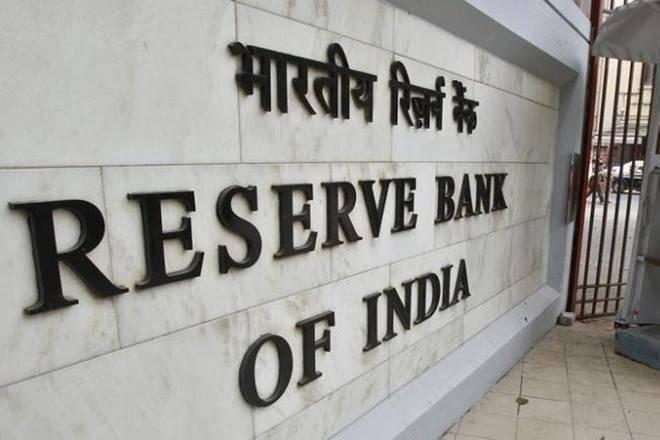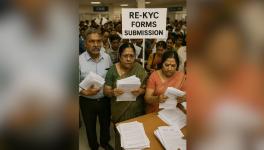RBI Hikes Immediate Payment Limit from Rs 2 Lakh to Rs 5 Lakh to Push Digital Transactions

Mumbai: In a bid to promote digital transactions, the Reserve Bank (RBI) on Friday proposed to increase the per transaction limit from Rs 2 lakh to Rs 5 lakh through Immediate Payment Service (IMPS).
IMPS managed by the National Payments Corporation of India (NPCI) is an important payment system providing 24x7 instant domestic funds transfer facility and is accessible through various channels like internet banking, mobile banking apps, bank branches, ATMs, SMS and IVRS.
With RTGS (real time gross settlement) now operational round the clock, there has been a corresponding increase in settlement cycles of IMPS, thereby reducing the credit and settlement risks.
"In view of the importance of the IMPS system and for enhanced consumer convenience, it is proposed to increase the per transaction limit from Rs 2 lakh to Rs 5 lakh," RBI Governor Shaktikanta Das said while announcing measures after the bi-monetary monetary policy review.
This will lead to further increase in digital payments and will provide an additional facility to customers for making digital payments beyond Rs 2 lakh, he said, adding, necessary instructions in this regard would be issued separately.
In addition, the Reserve Bank also proposed to introduce a framework for retail digital payments in offline mode across the country.
The Statement on Developmental and Regulatory Policies dated August 6, 2020 had announced a scheme to conduct pilot tests of innovative technology that enables retail digital payments even in situations where internet connectivity is low or not available (offline mode).
Three pilots were successfully conducted under the Scheme in different parts of the country during the period from September 2020 to June 2021 involving small-value transactions covering a volume of 2.41 lakh for value Rs 1.16 crore.
"Given the encouraging experience gained from the pilot tests, it is proposed to introduce a framework for retail digital payments in offline mode across the country. This will further expand the reach of digital payments and open up new opportunities for individuals and businesses," Das said.
He further said, ensuring wider availability of payments acceptance (PA) infrastructure throughout the country has been one of the priority areas for financial inclusion.
To target areas with deficient PA infrastructure, he said, it is proposed to introduce a framework for leveraging geo-tagging technology for capturing exact location information on all existing and new PA infrastructure viz., Point of Sale (PoS) terminals, Quick Response (QR) Codes, etc.
This would complement the Payment Infrastructure Development Fund (PIDF) framework of the Reserve Bank in ensuring wider geographical deployment of PA infrastructure, he added.
Das said the Reserve Bank’s Regulatory Sandbox (RS) has so far introduced three cohorts on ‘Retail Payments’; ‘Cross Border Payments’; and ‘MSME Lending’.
With a view to providing further impetus to the fintech ecosystem, he said, a fourth cohort on ‘Prevention and Mitigation of financial frauds’ is being announced.
In addition, he said, based on the experience gained and the feedback received from stakeholders, it is proposed to facilitate ‘On Tap’ application for earlier themes for participating in the Regulatory Sandbox.
This measure is expected to ensure continuous innovation in the fintech ecosystem of our country.
Select NBFCs to have internal ombudsman
With the objective of upping customer experience, the RBI announced an internal ombudsman scheme (IOS) to redress grievances at select non-banking finance companies (NBFCs).
The IOS will be on the lines of a similar system adopted at banks and will redress grievances related to deficiencies in service, Governor Shaktikanta Das said, announcing the new measure in the statement on regulatory policies along with the bi-monthly review of the monetary policy.
“The increased significance, strength and reach of NBFCs across the country have necessitated having in place better customer experience including grievance redress practices,” he said.
Das said over the last few years, the RBI has taken a slew of measures to improve consumer protection at NBFCs which include asking such lenders to appoint nodal officers to address grievances in 2013 and launch of the ombudsman scheme for NBFCs in 2018.
“With a view to further strengthening the internal grievance redress mechanism of NBFCs, it has been decided to introduce the Internal Ombudsman Scheme (IOS) for certain categories of NBFCs which have higher customer interface,” he said.
There will be an internal ombudsman at the top of the NBFCs' internal grievance redress mechanism to examine customer complaints which are in the nature of deficiency in service and are partly or wholly rejected by the NBFCs, he said, adding detailed instructions on the same will be issued separately.
Meanwhile, Das also announced a six month extension in the facility which allows banks to on-lend through NBFCs and get the priority sector lending tag, till March 2022.
He reminded that bank lending to registered NBFCs (other than micro-lenders) for on-lending to agriculture (investment credit), Micro and Small enterprises and housing (with an increased limit) was permitted to be classified as priority sector lending up to certain limits in August 2019.
Increased traction has been observed in delivering credit to the underserved/unserved segments of the economy through the scheme, which was last extended till September 30 in April, Das said.
Get the latest reports & analysis with people's perspective on Protests, movements & deep analytical videos, discussions of the current affairs in your Telegram app. Subscribe to NewsClick's Telegram channel & get Real-Time updates on stories, as they get published on our website.
























